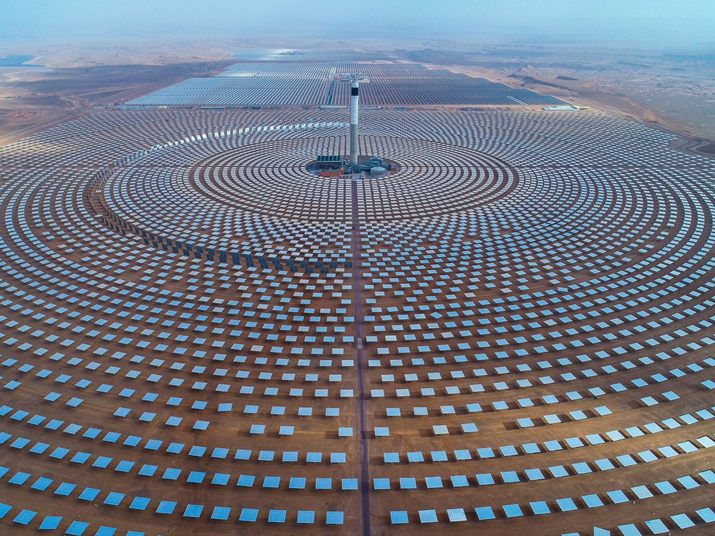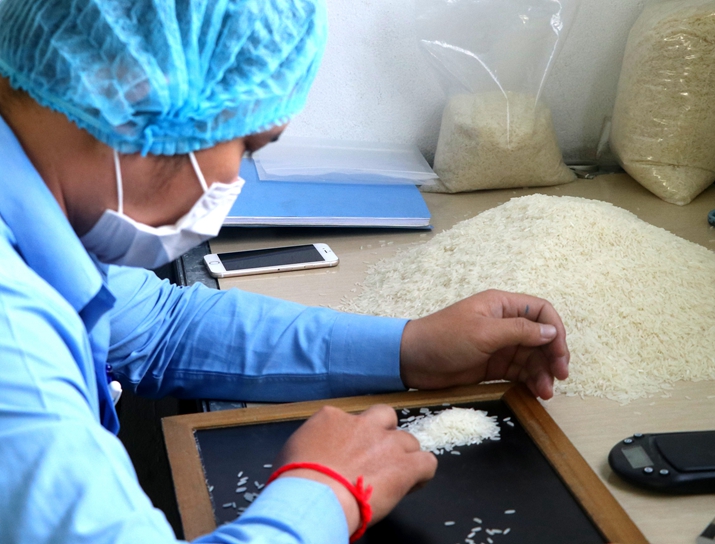

UN sustainability goals along with global economic issues must be urgently addressed

Phases II and III of the Noor Ouarzazate complex, the world's largest solar power plant, in Morocco on June 8, 2018 . (Xinhua Photo)
UN member states have committed to a decade of action to deliver the Sustainable Development Goals (SDGs) by 2030. There is no time for delay.
According to UN estimates in the World Economic Situation and Prospects 2020 report, the global economy sank to a recent low in 2019. World GDP growth slipped to 2.3 percent, while world trade growth slowed to 0.3 percent, the worst performance in the last 10 years.
The global economy continues to face a host of risks and uncertainties, including continued trade tensions, escalating geopolitical conflicts, elevated debt levels, as well as catastrophic climate shocks. Provided these factors can be contained, a modest uptick in global growth to 2.5 percent is projected for 2020. However, the risks of a further deterioration in the economic situation remain high. Prolonged weakness in global economic activity may cause significant setbacks for sustainable development, including the goals to eradicate poverty and create decent jobs for all.
The share of the world population living in extreme poverty has declined steadily and significantly over the past few decades, largely due to successful experiences in China and India. Although progress has been made in global terms, in the last few years the number of people living in extreme poverty has been rising in several sub-Saharan countries and in parts of Latin America and West Asia. At the same time, pervasive inequalities and the deepening climate crisis have fueled growing discontent in many parts of the world.
Economic growth around the world remains very uneven. Despite significant headwinds from global trade tensions, East Asia remains the world's fastest growing region and the largest contributor to worldwide growth, but globally, one in five countries will see per-capita incomes stagnate or decline in 2020. Many of these are commodity exporters, which are still ailing from the effects of the commodity price downturn of 2014-16. In one third of commodity-dependent developing countries--home to 870 million people--average real incomes are lower today than they were in 2014. This includes several larger economies, such as Angola, Argentina, Brazil, Nigeria, South Africa and Saudi Arabia. In addition, Africa has experienced a decade of near stagnation in per-capita GDP, notwithstanding some bright spots such as Ethiopia, Rwanda and Cote d'Ivoire. Meanwhile, average per-capita incomes in Latin America and the Caribbean are about 4 percent lower today than in 2014.
With the deteriorating economic outlook, central banks around the world have once again become the main line of defense. A total of 64 central banks reduced interest rates in 2019, marking the broadest shift in monetary policy since the 2008 global financial crisis. However, it has become clear that overreliance on monetary policy is not just insufficient to revive economic growth, but also entails significant costs, including an increase in financial stability risks in the future.

A worker checks the quality of rice for export at a factory in Phnom Penh, Cambodia, on October 19, 2019. (Xinhua Photo)
Meanwhile, investors continue to underestimate climate risks, encouraging short-sighted decisions that expand investment in carbon-intensive assets. This leaves many governments and investors exposed to sudden losses, while posing substantial setbacks to sustainable environmental targets. The only way to decisively sever the link between greenhouse gas emissions and economic activity is to change the energy mix and move away from burning fossil fuels. Energy transition is expected to have substantial social consequences, which will fall unevenly within and among countries. Measures to compensate those who are disproportionately impacted are essential to protect vulnerable populations and safeguard the political viability of difficult but urgently needed policy actions.
As we enter this decade of action, it is time for a reset in economic policy-thinking. A more balanced policy mix is called for to stimulate healthy economic growth while moving toward greater social inclusion, gender equality and environmentally sustainable production. More effective and accountable mechanisms are needed to shift the focus of policymaking from short-term targets toward longer-term planning for inclusive economic development.
Countries should make use of available fiscal space to advance development goals. Even where fiscal space is tight, there is ample scope to improve the efficiency and design of fiscal, industrial and labor market policies, so that they are well-coordinated and optimized to deliver the SDGs.
Policy uncertainty is the number one factor holding back much-needed investment from reaching development targets. To ease these uncertainties, more efforts are needed to reassert multilateral solutions to trade issues. It is also imperative to clarify and commit to policies that will combat climate change and deliver energy transition, and to develop transparent international finance arrangements and effective debt resolution mechanisms.
The biggest challenges of this age cannot be addressed by national policies alone. Strong global leadership and a commitment to change will be crucial in reaching our common aims of achieving sustainable economic growth and improving the wellbeing of all of humanity.
The author Liu Zhenmin is UN under secretary general for economic and social affairs
Source: Beijing Review

 Award-winning photos show poverty reduction achievements in NE China's Jilin province
Award-winning photos show poverty reduction achievements in NE China's Jilin province People dance to greet advent of New Year in Ameiqituo Town, Guizhou
People dance to greet advent of New Year in Ameiqituo Town, Guizhou Fire brigade in Shanghai holds group wedding
Fire brigade in Shanghai holds group wedding Tourists enjoy ice sculptures in Datan Town, north China
Tourists enjoy ice sculptures in Datan Town, north China Sunset scenery of Dayan Pagoda in Xi'an
Sunset scenery of Dayan Pagoda in Xi'an Tourists have fun at scenic spot in Nanlong Town, NW China
Tourists have fun at scenic spot in Nanlong Town, NW China Harbin attracts tourists by making best use of ice in winter
Harbin attracts tourists by making best use of ice in winter In pics: FIS Alpine Ski Women's World Cup Slalom
In pics: FIS Alpine Ski Women's World Cup Slalom Black-necked cranes rest at reservoir in Lhunzhub County, Lhasa
Black-necked cranes rest at reservoir in Lhunzhub County, Lhasa China's FAST telescope will be available to foreign scientists in April
China's FAST telescope will be available to foreign scientists in April